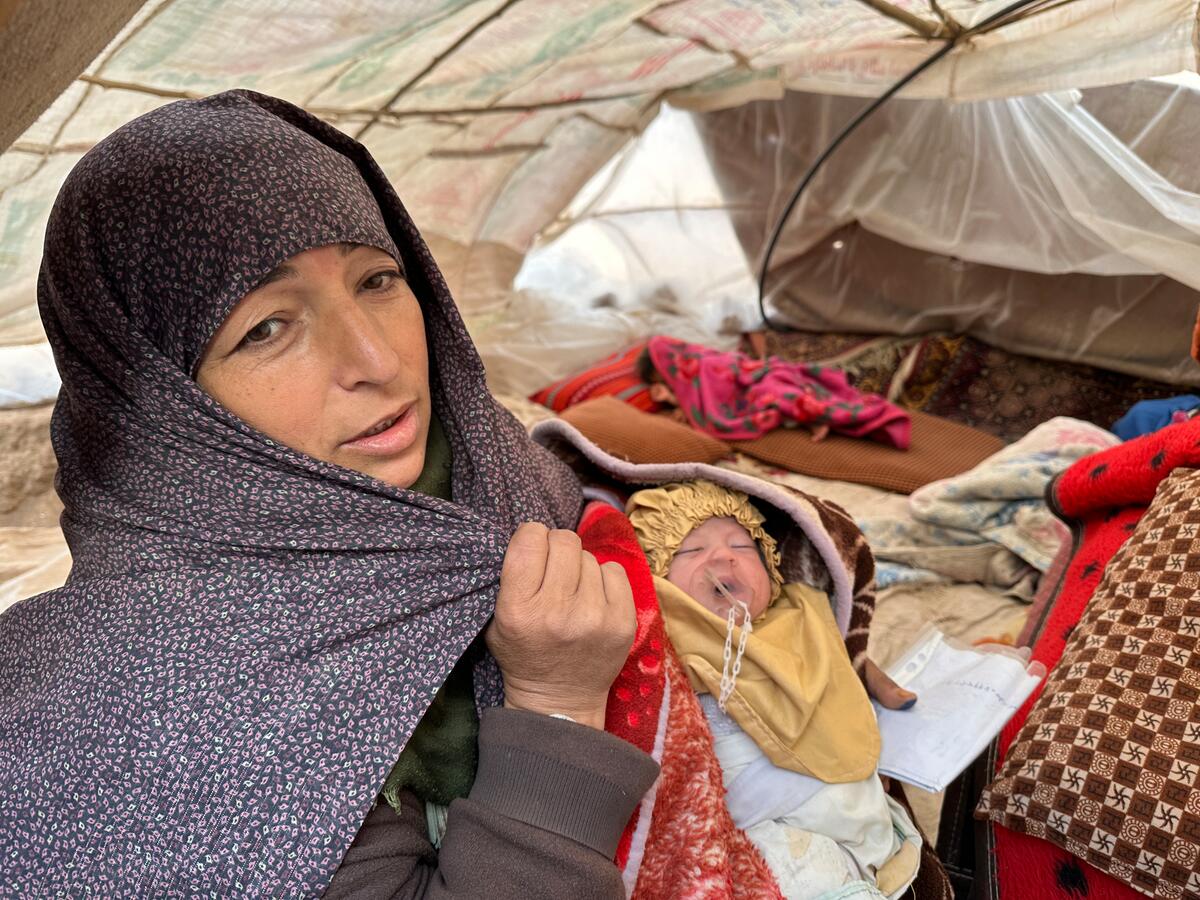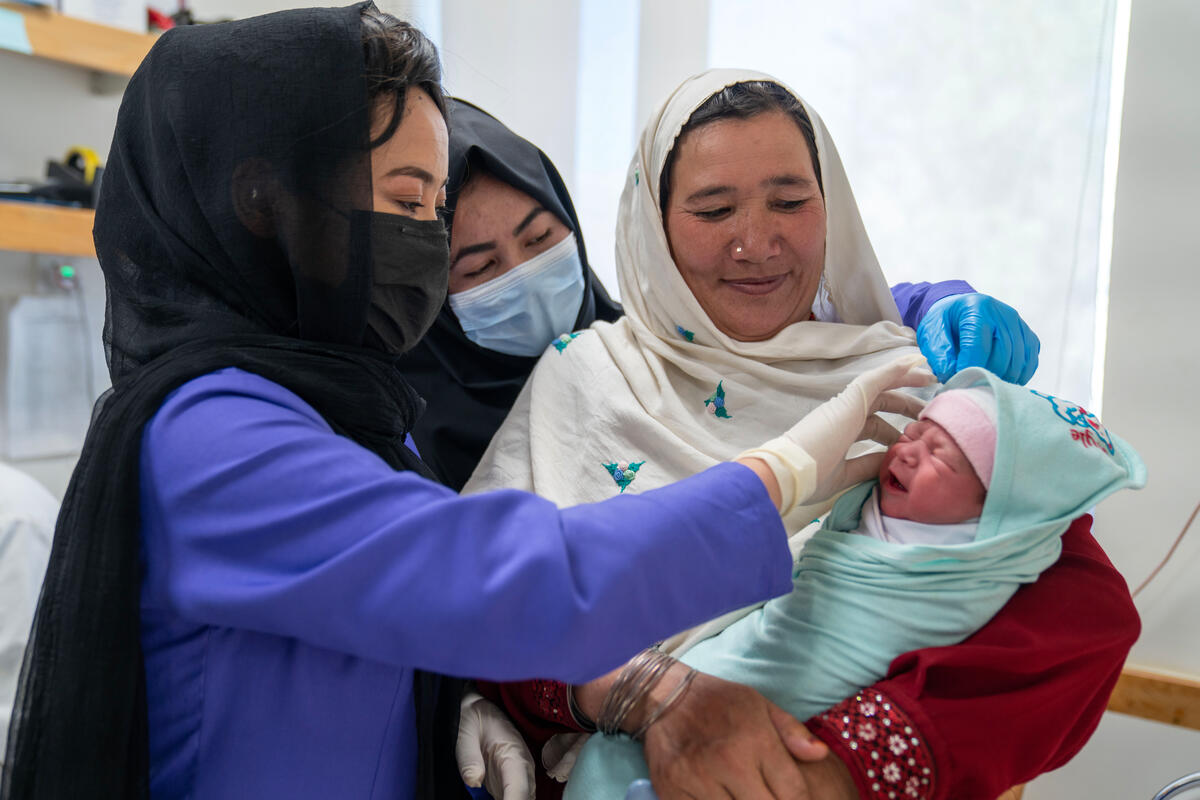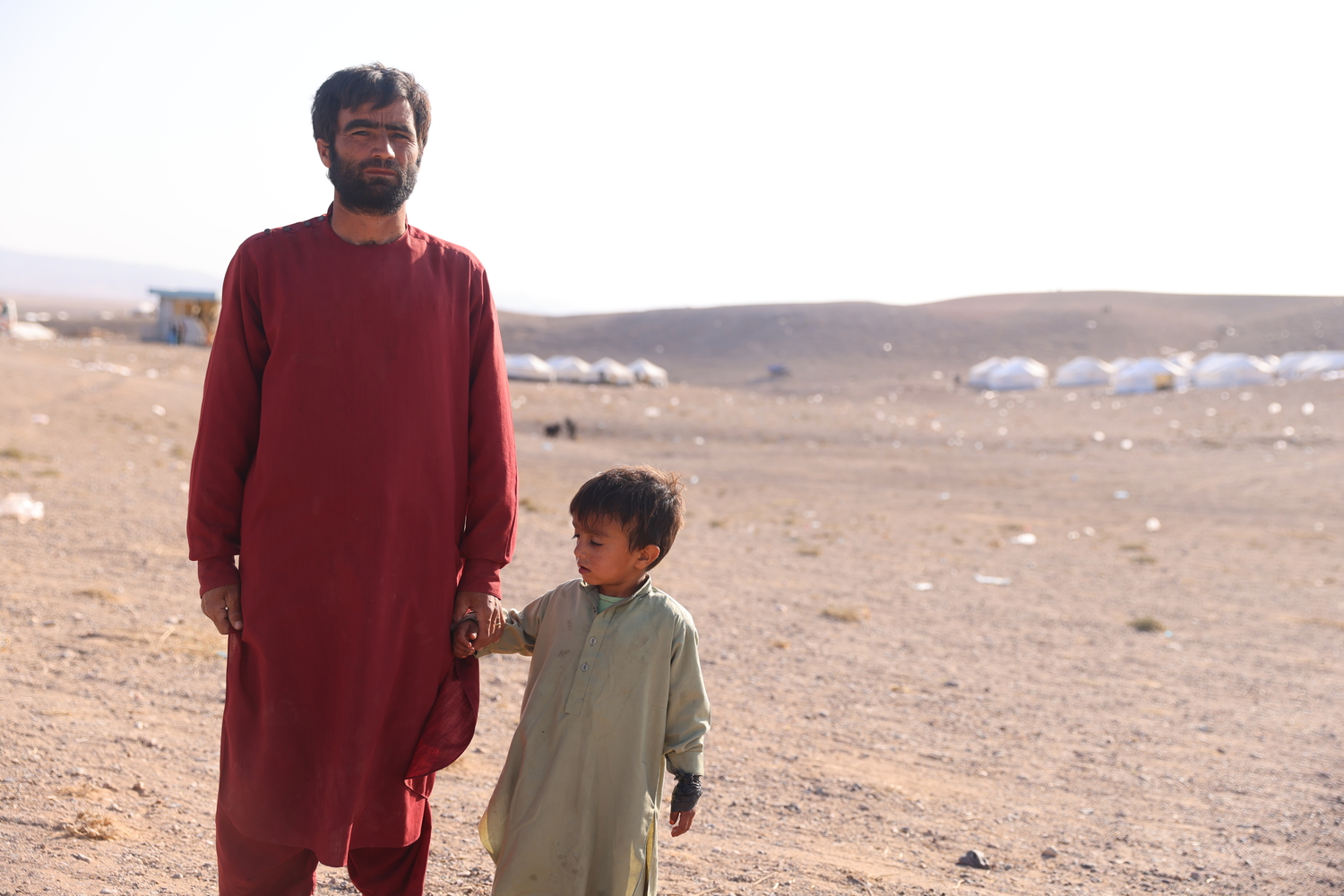Lubbers to review relief, return operations in Afghanistan
Lubbers to review relief, return operations in Afghanistan

GENEVA, August 23 (UNHCR) - With more than 1.5 million Afghan refugees already back home, UN High Commissioner for Refugees Ruud Lubbers today left on a five-day mission to assess the unprecedented repatriation and meet with government officials in Afghanistan.
"The purpose of my trip is to see how repatriation is developing at the moment," Lubbers told BBC Radio on the eve of his mission.
It will be his second trip to the war- and drought-ravaged country since UNHCR and the Afghan government began assisting voluntary returnees homewards beginning in March this year, the largest return movement the agency has seen since the 1971 resettlement of 2 million people to Pakistan.
Arriving in Kabul on Saturday, the High Commissioner is set to meet President Hamid Karzai and other officials in the Afghan Transitional Authority. They are likely to touch on the issue of security for returnees, especially in view of reports of ethnic attacks and persecution in the north.
"There are certain villages where you wait and see a bit," Lubbers said with regard to the return of Afghans to areas of the country still experiencing ethnic strife.
"We are working hard to get conditions of security. We are negotiating with people in positions of power," said Lubbers, adding that if local authorities improve security conditions for all Afghan ethnic groups in their communities, they will get international assistance to develop the country so that everyone can benefit.
"When I was in Afghanistan earlier this year, I saw returnees literally repairing things with their hands," he recalled. "It's possible, with enough manpower, for Afghanistan to be reconstructed."
On Monday, Lubbers is scheduled to leave Kabul for Kandahar, where he will assess the situation of displaced Afghans in the south and the different solutions needed to help the government resolve that problem. There are more than 400,000 homeless Afghans in southern Afghanistan, some fleeing the effects of the four-year drought, others escaping from ethnic persecution in the north.
The High Commissioner plans to visit Spin Boldak, a windswept encampment of some 30,000 Afghans near the border with Pakistan. He will also visit Zhare Dasht, a new temporary site for Afghans stranded since February in squalid encampments in the Pakistan border area of Chaman.
Since the start of UNHCR's voluntary relocation convoys from dusty Chaman to Zhare Dasht on August 15, some 1,800 individuals have moved to the new site, where they are living in UNHCR tents while they build temporary homes on allocated plots of land.
Lubbers, who returns to Geneva on Wednesday, will spend the last part of his mission meeting with Special Representative of the Secretary-General Lakhdar Brahimi and other senior UN officials in Kabul. He will consult UNHCR staff on the ground about the ongoing repatriation operation, and review the agency's goals for 2003.
To help returning Afghans get through the approaching winter, the UN refugee agency is working to provide more than 40,600 kits containing wooden beams, door and window frames along with the necessary nails and tools to ensure that up to 400,000 Afghan returnees can rebuild their homes.
Already UNHCR's partners have identified more than 23,000 needy families, and more than 3,000 shelters have been completed in a race against time. The poor condition of Afghanistan's infrastructure, a lack of non-governmental organisations and qualified local staff has hampered the shelter effort in some areas of the country.
The UN refugee agency has so far received $243 million, or 90 percent, of its budget for Afghanistan and the surrounding asylum states for the 15 months ending in December 2002.
In addition to the over 1.5 million Afghan refugees who have returned under UNHCR's auspices since March, another more than 200,000 spontaneous returnees have raced back outside the voluntary repatriation initiative upon the fall of the Taliban.








